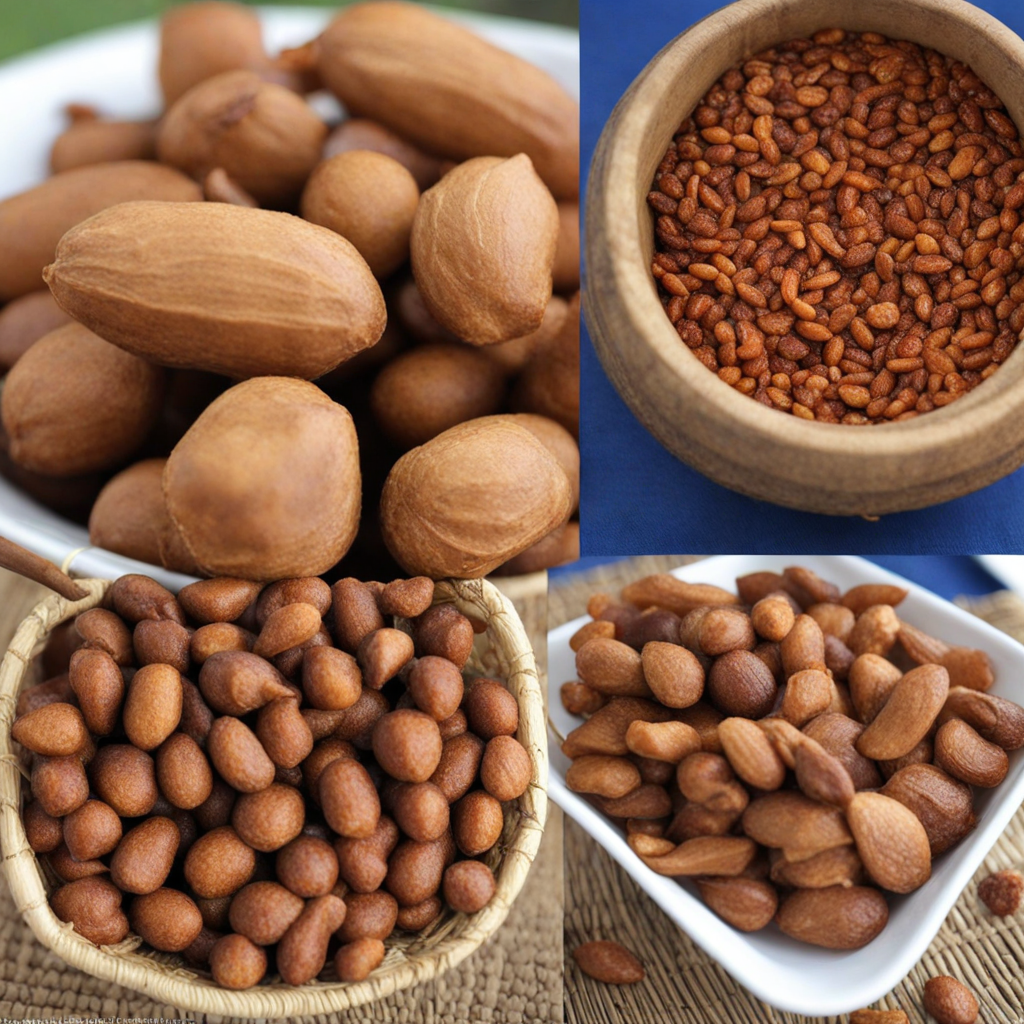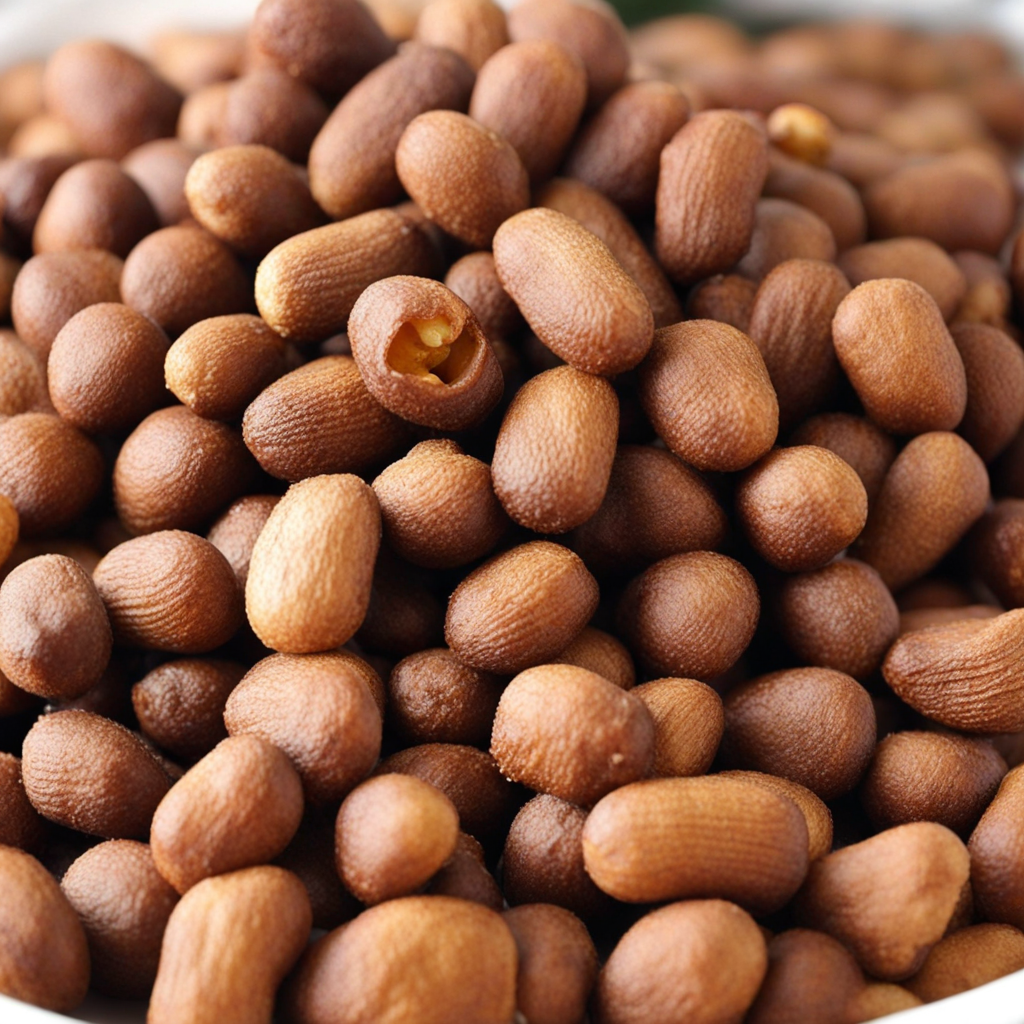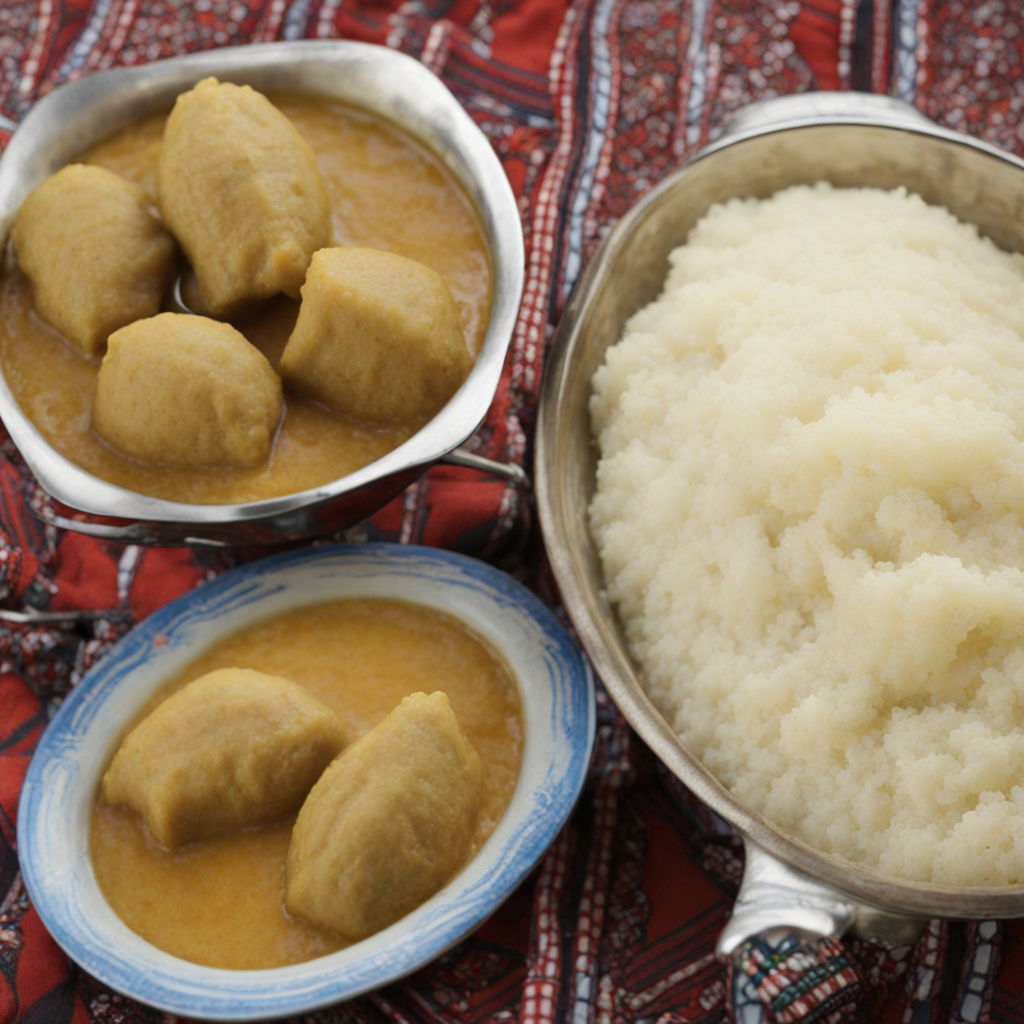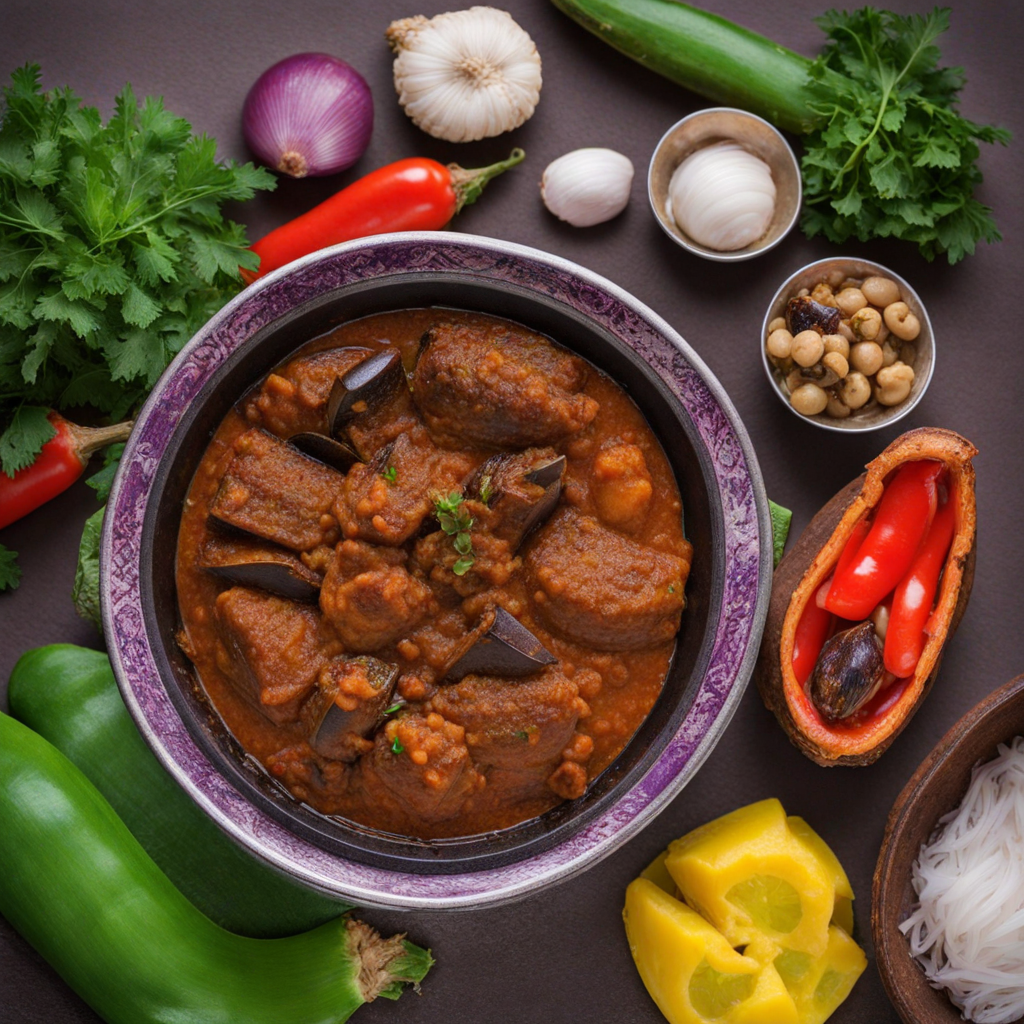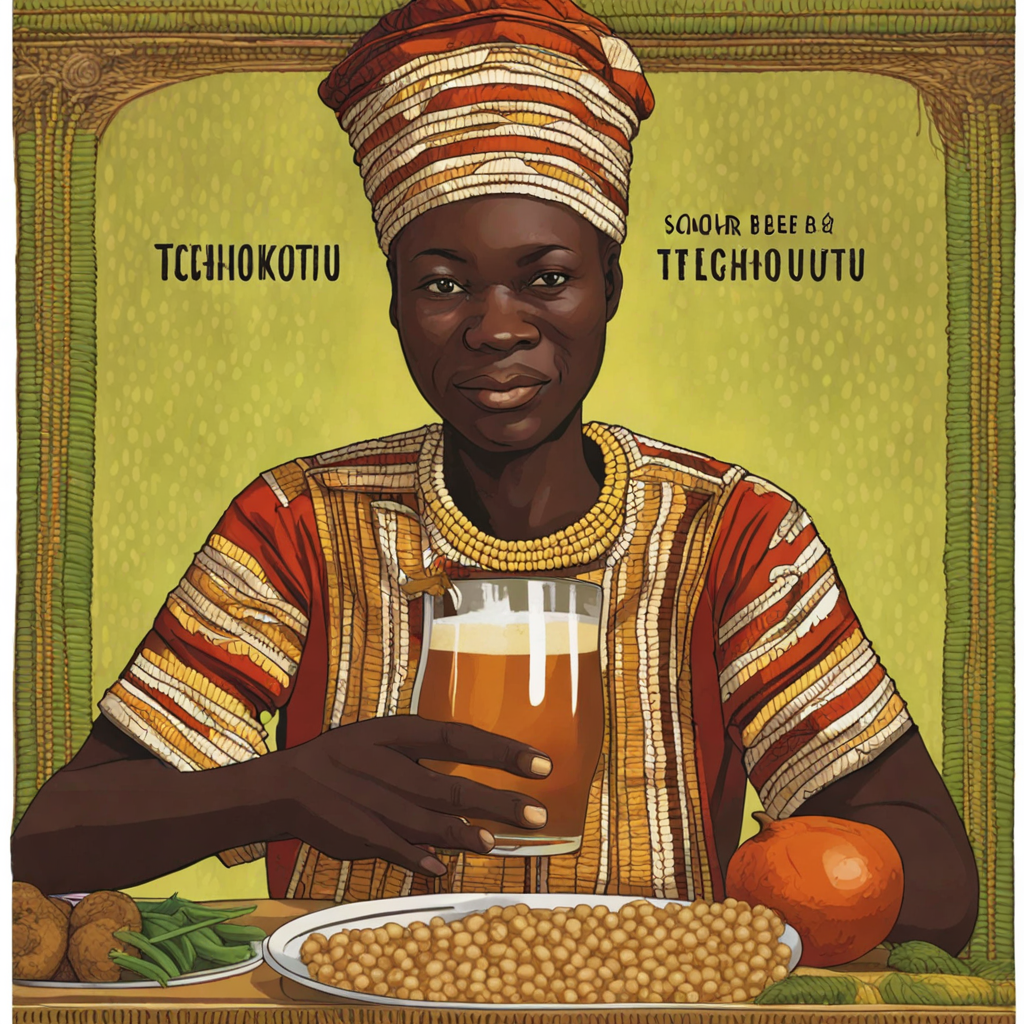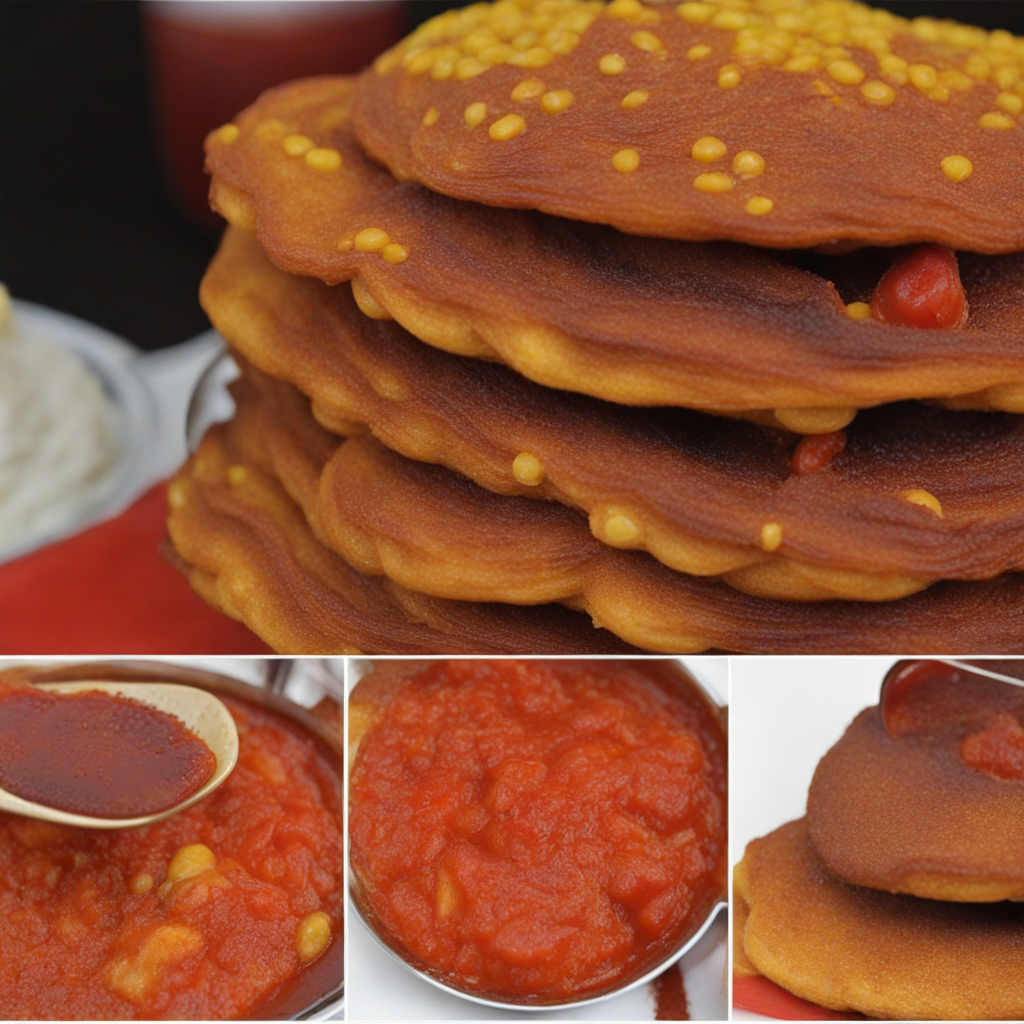Kuli-Kuli
Kuli-Kuli is a delightful and crunchy snack that hails from Benin, characterized by its unique nutty flavor and satisfying texture. Made primarily from roasted groundnuts or peanuts, Kuli-Kuli undergoes a meticulous process where the peanuts are first roasted to bring out their rich, earthy notes. After roasting, they are ground into a smooth paste, seasoned with spices, and then molded into small, bite-sized pieces, which are subsequently fried until golden brown, giving them a crispy exterior. The result is a snack that is not only delicious but also provides a wholesome source of protein and healthy fats. The taste of Kuli-Kuli is a harmonious blend of savory and slightly sweet notes, enhanced by the spices that are often incorporated into the mix. Some variations may include ingredients like garlic, chili, or even herbs, which elevate the flavor profile and cater to different palates. When you bite into a piece of Kuli-Kuli, you experience a satisfying crunch that gives way to a rich, nutty essence that lingers on your taste buds, making it an irresistible treat for both casual snackers and gourmet food enthusiasts alike. This snack is often enjoyed on its own or paired with other dishes, such as salads or as a topping for stews, adding texture and flavor. In Benin, Kuli-Kuli is commonly served as a street food delight, often accompanied by fresh fruits or spicy sauces to complement its taste. Whether you are discovering it at a local market or trying your hand at making it at home, Kuli-Kuli offers a unique and flavorful experience that captures the essence of Beninese cuisine and is sure to leave a lasting impression on your palate.
How It Became This Dish
Kuli-Kuli: The Nutty Delight from Benin Kuli-Kuli, a beloved snack originating from West Africa, particularly Benin, has a rich history that intertwines with cultural practices, culinary traditions, and social dynamics of the region. This crispy, nutty treat is not just a food item; it is a symbol of resilience, innovation, and community among the people of Benin and beyond. Origins: The Birth of Kuli-Kuli The origins of Kuli-Kuli can be traced back several centuries, rooted deeply in the agricultural practices of the Yoruba people, who inhabit parts of Benin and Nigeria. The primary ingredient of Kuli-Kuli is groundnut, commonly known as peanuts. While peanuts are native to South America, they were introduced to Africa by Portuguese traders in the 16th century. The crop quickly adapted to the African climate and became a staple food source, particularly in the West African region. In the early days, peanuts were primarily consumed as a source of protein and used in various traditional dishes. However, as communities evolved, so did their culinary practices. The process of making Kuli-Kuli likely emerged from the need to preserve excess groundnuts. To create Kuli-Kuli, the peanuts are roasted, ground into a paste, and then fried, resulting in a crunchy snack that has a rich, earthy flavor. Cultural Significance: More Than Just a Snack Kuli-Kuli holds a prominent place in the culinary landscape of Benin and is often considered a traditional delicacy. It is more than just a snack; it embodies the spirit of resourcefulness and community. Traditionally, women played a significant role in the production of Kuli-Kuli, often making it at home and selling it in local markets. This not only provided them with a source of income but also empowered them within their communities. In Benin, Kuli-Kuli is often enjoyed during social gatherings, celebrations, and festivals. It is commonly served alongside beverages or as a side dish with various meals. The snack has become synonymous with hospitality, as offering Kuli-Kuli to guests signifies generosity and warmth. In this way, food becomes a vehicle for social interaction, bonding families and communities together. Development Over Time: From Tradition to Modernity As time progressed, the humble Kuli-Kuli underwent transformations that reflect broader societal changes. The introduction of modern agricultural practices and the globalization of food markets have influenced the production and consumption of Kuli-Kuli. While traditional methods still prevail in many households, commercial production began to emerge in the late 20th century. With the rise of urbanization, Kuli-Kuli became increasingly popular in city life, where busy professionals sought convenient, nutritious snacks. As a result, various brands began to package Kuli-Kuli for mass distribution, making it more accessible to a wider audience. This commercialization not only expanded its reach but also led to variations in flavors and ingredients, catering to modern tastes. Today, Kuli-Kuli can be found in different forms, such as flavored versions with spices, herbs, and even chocolate, appealing to a younger demographic. Despite these changes, the essence of Kuli-Kuli remains intact. It continues to be cherished as a nostalgic reminder of home and tradition, even for those who have migrated to urban areas or abroad. The snack has transcended regional boundaries, finding its way into the hearts and homes of people across the globe, including the African diaspora in Europe and North America. Kuli-Kuli in Contemporary Cuisine In recent years, Kuli-Kuli has gained attention beyond its traditional roots, as chefs and food enthusiasts explore its potential in modern cuisine. The nutty flavor and crunchy texture make it a versatile ingredient, suitable for salads, soups, and even gourmet dishes. Creative reinterpretations of Kuli-Kuli have emerged, showcasing its adaptability and appeal to contemporary palates. Moreover, Kuli-Kuli’s health benefits have contributed to its resurgence in popularity. Peanuts are rich in protein, healthy fats, and essential vitamins, making Kuli-Kuli an appealing snack option for health-conscious consumers. The rise of plant-based diets has further propelled its status as a nutritious alternative to processed snacks. The Future of Kuli-Kuli: A Culinary Heritage As we look to the future, Kuli-Kuli stands at a crossroads of tradition and innovation. While the roots of this snack are firmly planted in the cultural soil of Benin, its journey is one of transformation and adaptation. The growing interest in African cuisine globally presents an opportunity to celebrate and elevate Kuli-Kuli on the world stage. To preserve the heritage of Kuli-Kuli, it is essential to support local producers and artisans who continue to uphold traditional methods. Initiatives promoting sustainable agriculture and fair trade can empower communities, ensuring that the legacy of Kuli-Kuli thrives for generations to come. In conclusion, Kuli-Kuli is more than just a delicious snack; it is a testament to the ingenuity and resilience of the people of Benin. From its humble beginnings as a means of preserving peanuts to its status as a beloved culinary staple, Kuli-Kuli tells a story of culture, community, and continuity. As this nutty delight continues to evolve, it remains a cherished symbol of West African heritage, inviting all to partake in its rich history and flavorful journey.
You may like
Discover local flavors from Benin


